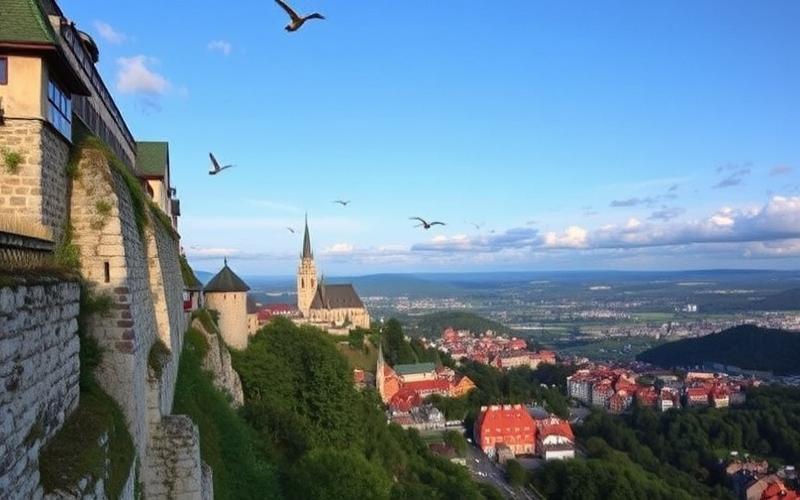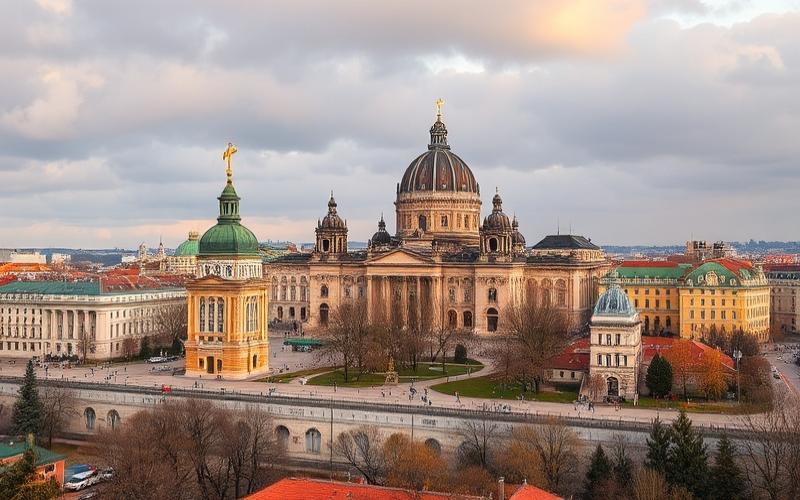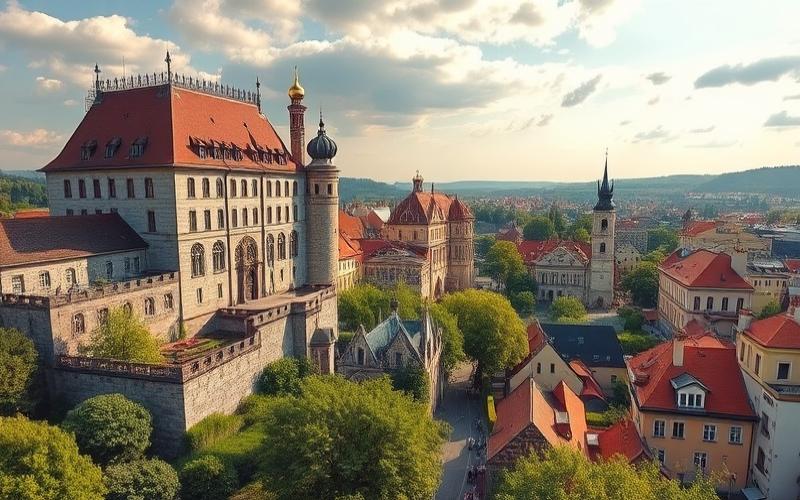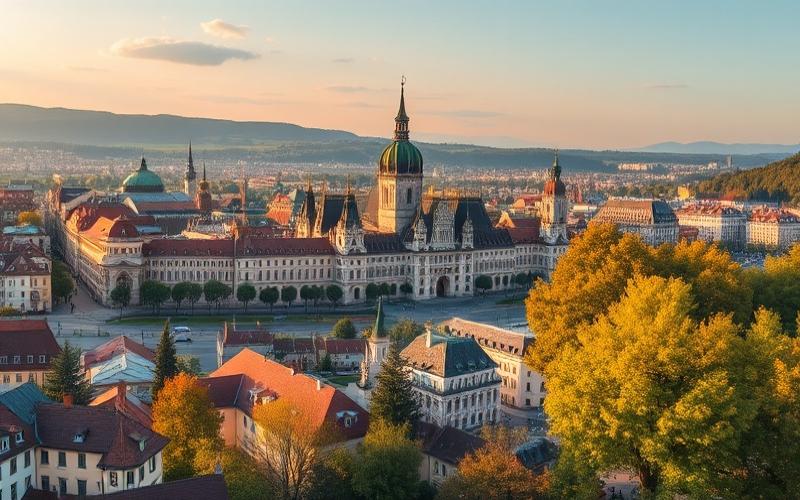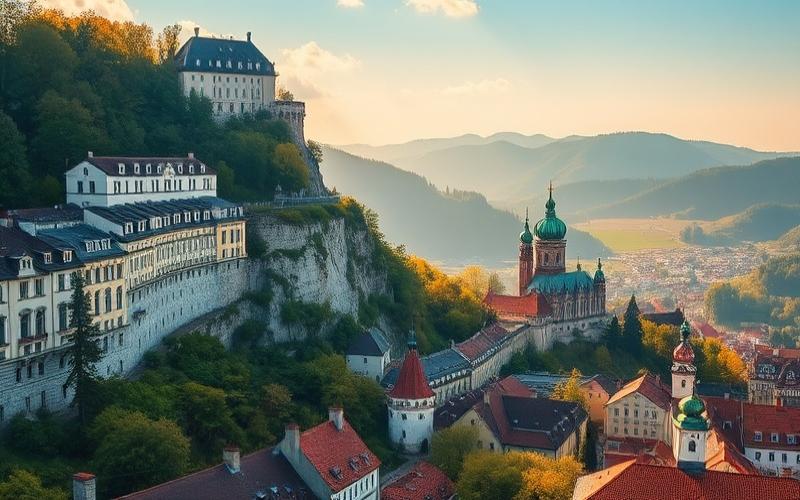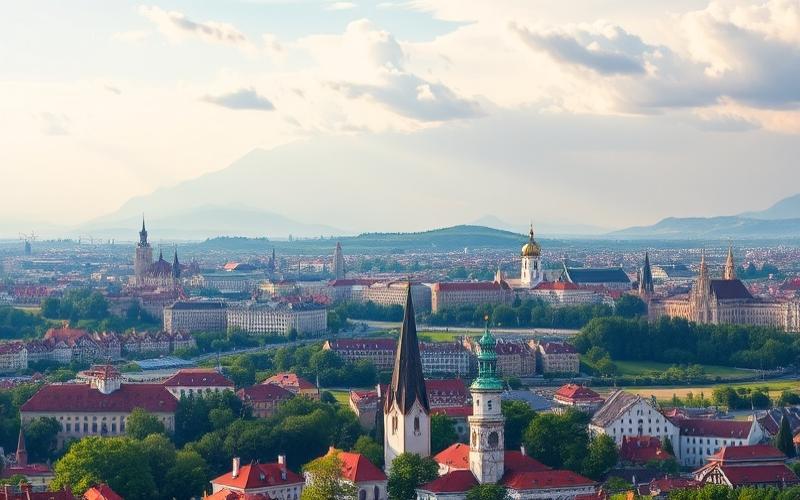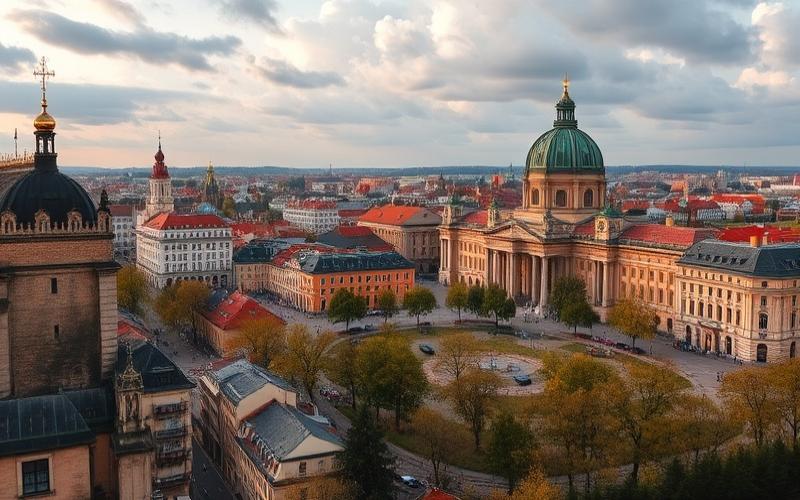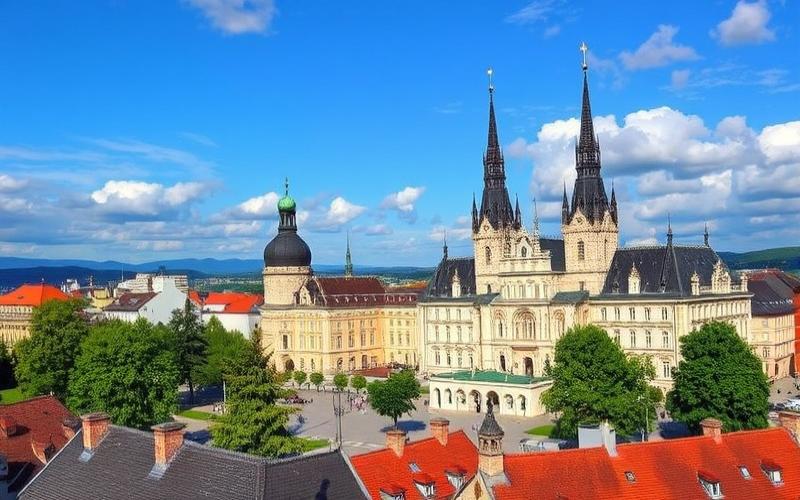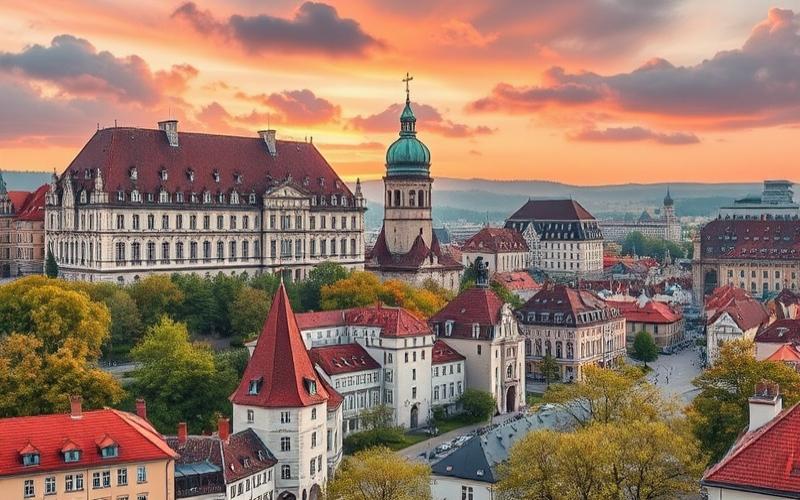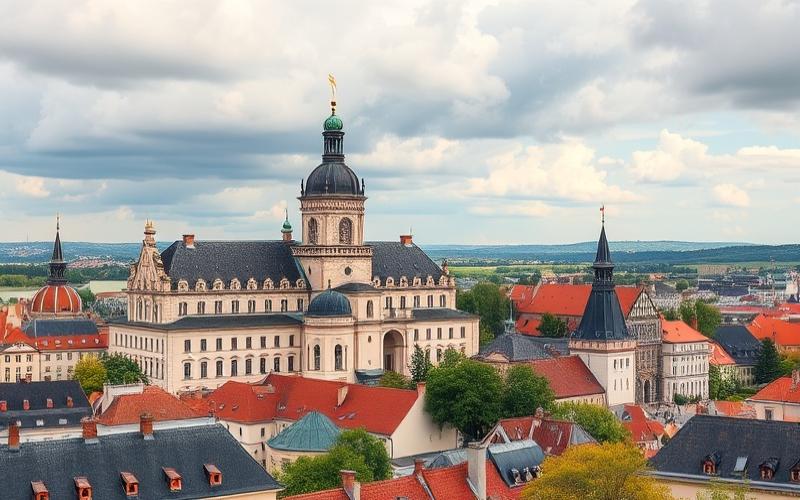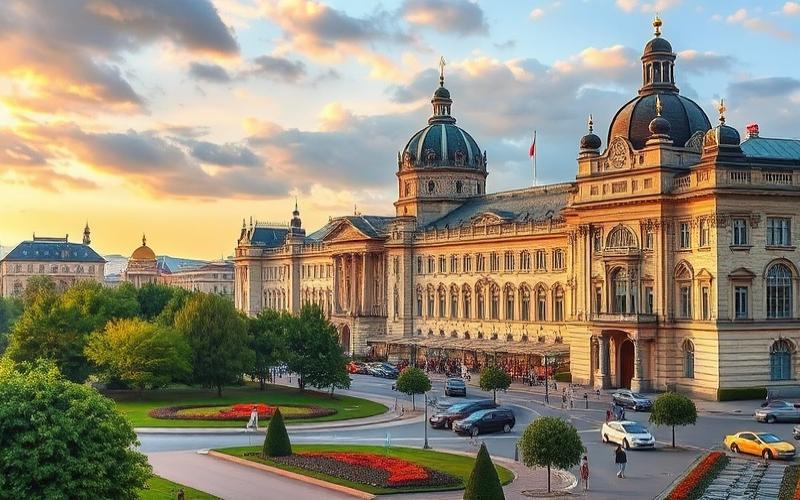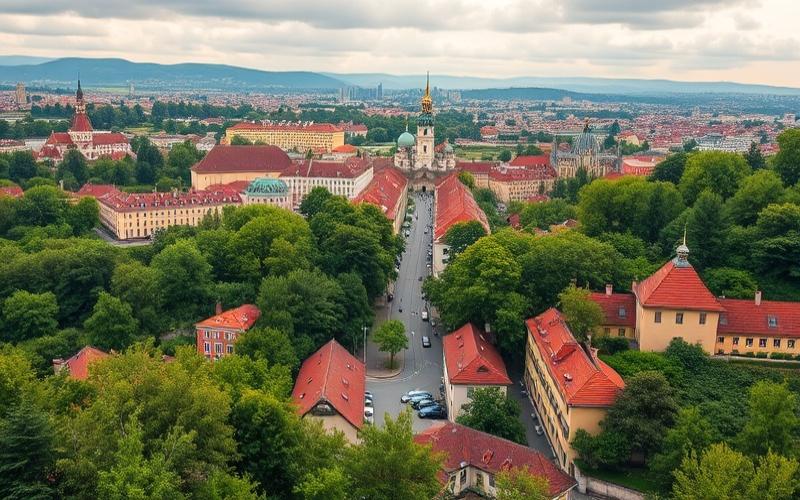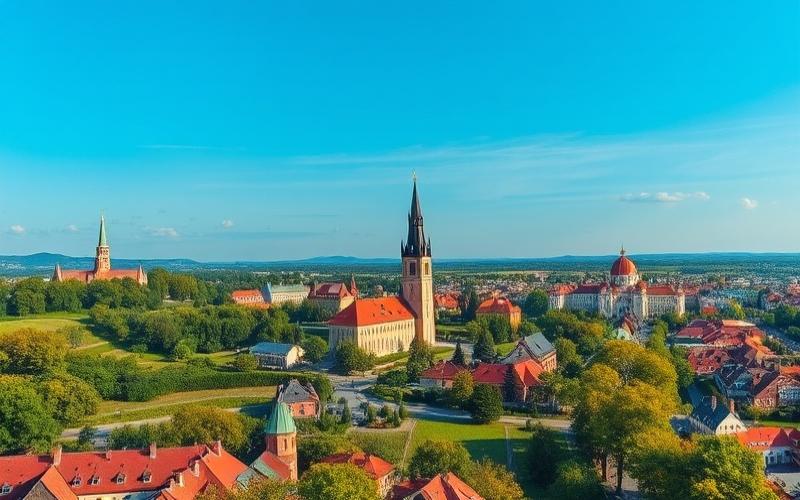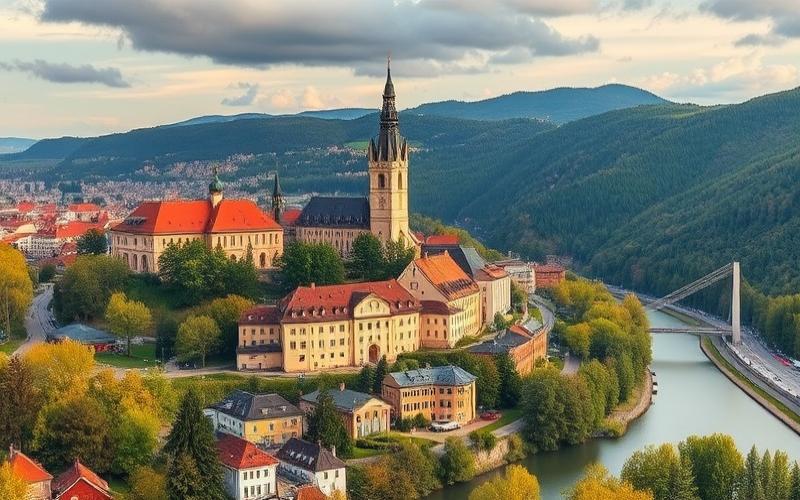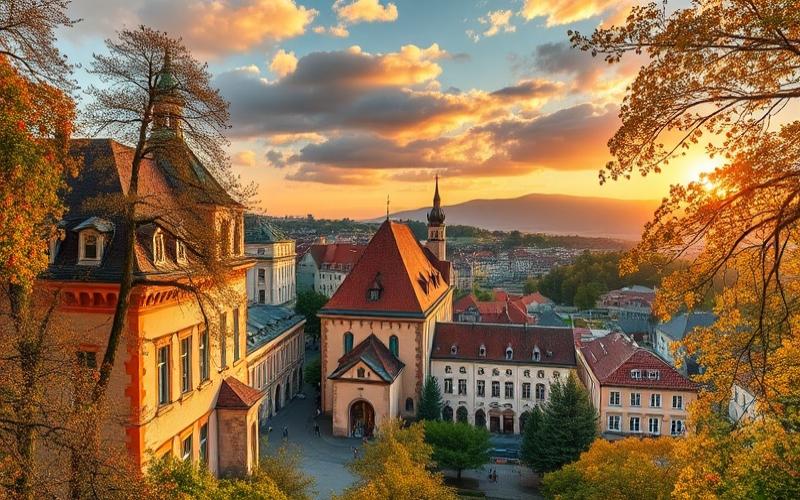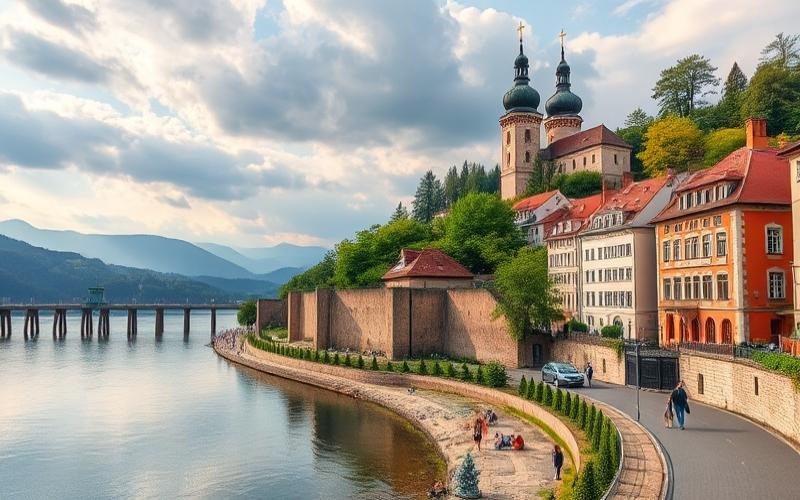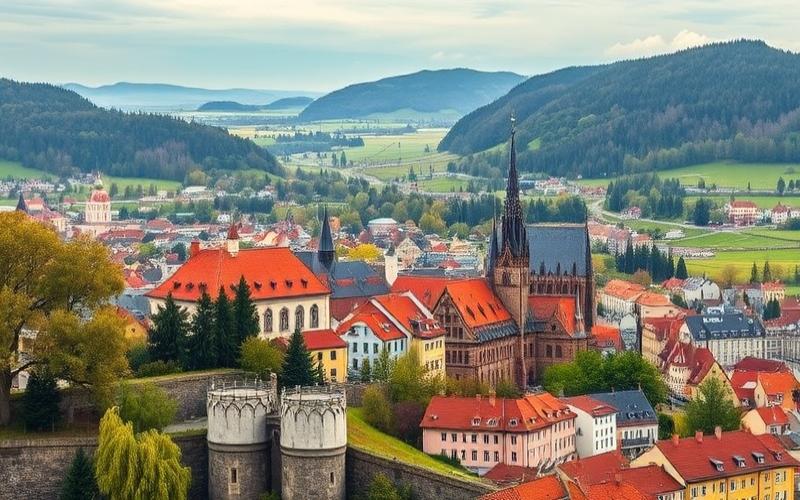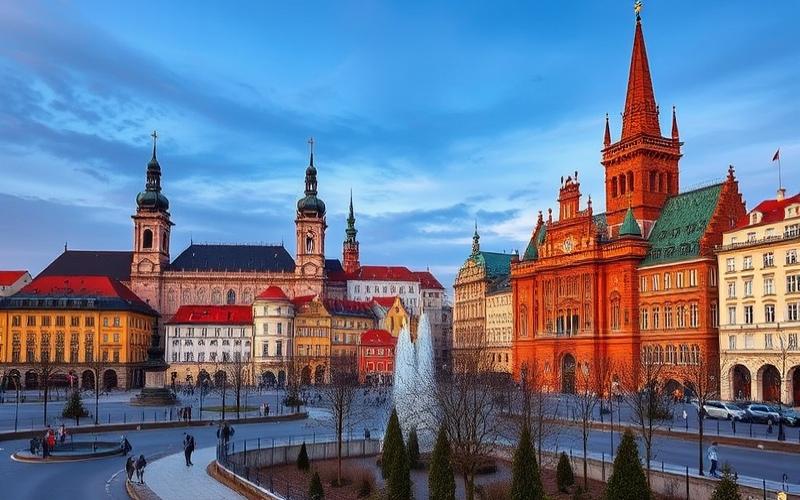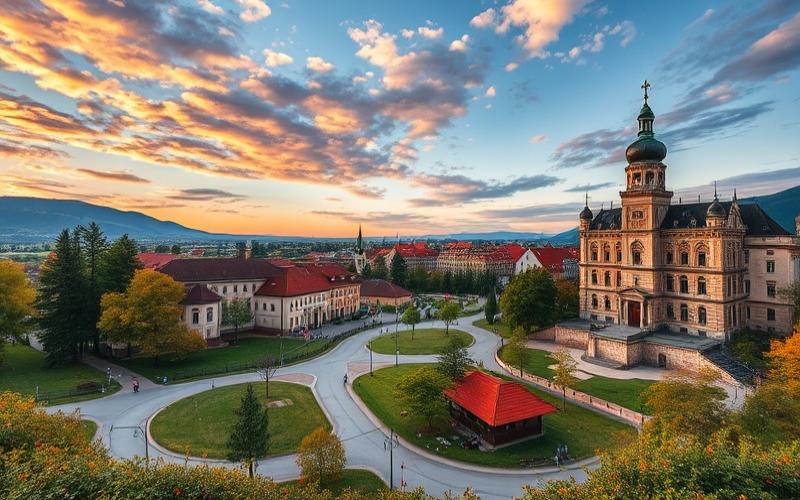
 Published on and written by Cyril Jarnias
Published on and written by Cyril Jarnias
Relocating to Poland as an expatriate can be a rewarding adventure filled with cultural discoveries and professional opportunities. As an active member of the European Union, Poland offers a dynamic and welcoming environment for those looking to settle there.
Whether you’re drawn to the vibrant capital Warsaw, the historical beauty of Krakow, or the growing economic opportunities in cities like Wrocław, this guide will provide you with the essential tools to make your relocation successful.
From finding suitable housing to understanding administrative and linguistic nuances, this article covers everything you need to know to make your move to Poland a positive and enriching experience.
Preparing Your Departure for Poland
As a European Union citizen, you won’t need a visa to enter Poland. A valid passport or national identity card is sufficient to access Polish territory. Minor children must also have their own identity documents. Before your departure, it is highly recommended to scan your identity documents and keep them in electronic format in your email, which will greatly facilitate procedures in case of loss or theft.
For stays exceeding three months, you must register your stay with the Polish authorities. Although this procedure takes place after arrival, it’s essential to gather the necessary documents beforehand. You’ll particularly need your temporary residence certificate (zameldowanie czasowe), which will be issued by the district municipality office of your residence. To obtain this certificate, prepare your lease agreement, at least one photo ID, as well as the family record book or translated marriage and birth certificates to register your spouse and children.
The residence registration certificate (zaświadczenie o zarejestrowaniu pobytu) is a mandatory procedure that must be completed at the voivodeship office. To prepare your file, you must present four completed and signed application forms, a copy of your ID, the residence certificate issued by the municipality, a document justifying the purpose of your stay (employment contract, job offer, school enrollment), as well as proof of health insurance. EU citizens do not need a work permit to engage in professional activities in Poland.
Finding housing can be complex, particularly in large cities like Warsaw. It’s advisable to begin your search several weeks before your departure, using specialized online platforms and contacting local real estate agencies. Some expatriates opt for temporary solutions upon arrival, such as short-term rentals or hotel rooms, while visiting properties and finalizing their choice on site. The lease agreement will be essential to obtain your residence certificate.
Organizing your move requires careful planning. Depending on the volume of your personal belongings, you can choose between several options: truck transport for a complete move, sending packages by land or sea for less bulky items, or simply bringing luggage if you plan to equip yourself locally. Evaluate the cost and duration of each option based on your actual needs. Also consider customs formalities, although exchanges within the European Union are facilitated.
Expatriate resources are valuable assets during your relocation. Support groups on social networks, particularly Facebook, bring together active French-speaking communities that share their experiences and practical advice. The Varsovie Accueil association offers specific support for French speakers settling in Poland, with information about administrative procedures and networking opportunities. Online expatriate forums also allow you to exchange with people who have experienced similar situations and get answers to your specific questions.
The language barrier often represents a major challenge for new arrivals. Learning the basics of Polish before your departure will significantly facilitate your daily life and demonstrate your willingness to integrate. Even a few essential phrases for everyday interactions will make a significant difference. Many mobile applications and online courses allow you to acquire these fundamentals. Once there, you can deepen your knowledge through language courses offered by various institutions. Simultaneously, inform yourself about local customs, social codes, and Polish traditions to avoid cultural missteps and facilitate relationships with your future neighbors and colleagues.
Financially, opening a Polish bank account becomes necessary soon after your arrival. This account will facilitate managing your daily expenses, paying your rent, and receiving your salary if you work locally. Polish banks generally offer packages adapted to expatriates, with efficient online services. You’ll need to present your ID, residence certificate, and sometimes proof of income. Compare banking offers before making your choice, paying attention to account maintenance fees and included services.
Health insurance is a crucial element of your relocation. If you’re posted by your company, verify the coverage you benefit from. Otherwise, you can use your European Health Insurance Card (EHIC) for healthcare in Poland, or take out private insurance offering more comprehensive coverage. This proof of health insurance will be required during your residence registration application. Carefully evaluate your medical needs and those of your family to choose the most appropriate option.
If you receive a French pension, expatriation doesn’t terminate your rights. You’ll need to transmit your new address to your pension fund and have a life certificate filled out annually by the competent local authority. Carefully preserve all documents related to your professional activity and social coverage, as they could prove useful for benefiting from certain allowances or asserting your rights later.
Good to Know:
Before leaving, check the requirements for a visa or residence permit and prepare the required documents, while exploring expatriate forums to get advice on choosing housing and establishing useful contacts. Familiarize yourself with the basics of Polish to better adapt, and consider opening a local bank account as well as inquiring about necessary insurance for your stay.
Essential Procedures Upon Arrival
As a European Union citizen, you can enter Polish territory with a valid passport or national identity card. For stays exceeding three months, several mandatory administrative procedures must be completed with the Polish authorities.
Residence Declaration and Stay Registration
The first step involves obtaining a temporary residence certificate (Zameldowanie czasowe) from the district municipality office (Urząd Miasta) of your residence. This procedure is mandatory and must be completed immediately upon installation. The certificate is generally issued for the duration of your housing lease, with a maximum of five years.
For this procedure, you must present:
- The administrative form for temporary residence registration (wniosek o zameldowanie czasowe) completed and signed, one for each family member
- The lease agreement in the applicant’s name
- At least one photo ID (passport or identity card)
- The family record book or marriage certificate and translated birth certificates to register spouse and children
Important: EU residents with an administrative electronic signature via their Trusted Profile (Profil Zaufany) can now register their residence and obtain a certificate without going in person, entirely online.
After obtaining the temporary residence certificate, you must proceed with stay registration at the voivodeship office. In Warsaw and its region, this procedure is completed at the Mazowiecki Urząd Wojewódzki, Oddział d/s Cudzoziemców, located at ul. Marszałkowska 3/5.
The file to prepare includes:
- 4 application forms completed and signed by the applicant
- A copy of the ID document (passport or national identity card)
- The residence certificate issued by the district municipality (zameldowanie)
- A document justifying the purpose of your stay in Poland and proof of stable income (employment contract, job offer, intra-company transfer, business creation, or for students, enrollment in a school or university)
- Proof of health insurance (Polish social security, European Health Insurance Card, or private insurance policy)
- For family members, the corresponding supporting documents: family record book, marriage certificate and translated birth certificates
Adults must appear in person or be represented by a proxy (power of attorney before a Polish notary). EU citizens do not need a work permit to engage in professional activities in Poland.
Obtaining PESEL and NIP Numbers
The PESEL number is a personal administrative registration number. Although not a legal obligation for European citizens, obtaining it is highly recommended as it facilitates many administrative procedures in Poland. This number can be requested from local authorities during your registration.
The NIP number is a tax identification number necessary particularly for people engaging in professional or entrepreneurial activities in Poland. It’s also available upon request.
Health Insurance
Health coverage is an essential element of your relocation. Several options are possible:
- The European Health Insurance Card (EHIC) for temporary coverage
- Affiliation with Polish social security if you engage in professional activity
- A private insurance policy if you’re not covered by a mandatory scheme
Proof of health insurance must be presented during stay registration.
Additional Practical Information
Before departure, it’s recommended to scan your identity documents and transfer them in electronic format to your email inbox, which will facilitate your procedures in case of loss.
For opening a Polish bank account, banks will generally request an ID document, residence certificate, and sometimes an employment contract or other proof of income. Obtaining the PESEL number beforehand will simplify this procedure.
Regarding tax authorities, it’s necessary to inform them of your arrival and new situation, particularly if you engage in professional activity or receive taxable income in Poland.
After five years of continuous residence in Poland, you can apply for a permanent residence card.
Good to Know:
Remember to bring a certified translation of your birth certificate to facilitate obtaining the PESEL number, and don’t forget that major Polish banks often offer services in English for opening accounts.
Integrating into the Polish Community
Knowing some basics of the Polish language, even though many Poles speak English, is a major asset for truly integrating. Most informal or group exchanges naturally occur in Polish: understanding or being able to participate in these conversations facilitates creating connections and accessing everyday information. Learning a few common phrases or pronunciation basics is often perceived as a sign of respect and openness, which fosters trust and welcome.
Opening up to local culture also involves discovering and understanding Polish traditions, holidays, and customs. Actively participating in these important moments (Christmas, Easter, national holidays, or “Tłusty Czwartek” – Fat Thursday) allows you to better grasp values and lifestyles, while sharing authentic experiences with locals.
Practical Tips for Building Connections
- Inform yourself about major Polish holidays and customs before attending them.
- Ask locals about their traditions to show your interest.
- Sample culinary specialties during celebrations or markets.
Participation in Community Events
Participation in community events is an excellent way to meet Poles and other expatriates:
- Street festivals (music, gastronomy, crafts)
- Local markets and seasonal fairs
- Sports clubs (soccer, volleyball, hiking)
- Game nights, creative workshops, or conversation groups
These activities promote integration and allow overcoming the language barrier through shared interests.
Social Networks and Expatriate Groups
Social networks and online expatriate groups play an essential role in getting information, exchanging practical advice, and expanding your social circle. Joining dedicated Facebook or WhatsApp groups (“French in Krakow,” “Expats in Warsaw”), participating in forums, or registering on platforms like InterNations or Meetup allows you to easily meet compatriots and locals open to international connections.
| City | Examples of Active Groups/Organizations |
|---|---|
| Warsaw | “Expats in Warsaw” (Facebook), Varsovie Accueil |
| Krakow | “French in Krakow,” International Friends of Krakow |
| Wrocław | Wrocław International Community, Meetup groups |
Etiquette Rules and Social Taboos
To avoid cultural misunderstandings, it’s essential to respect certain etiquette rules and know some social taboos:
- Always greet politely and shake hands during formal meetings.
- Be punctual: punctuality is highly appreciated in Poland.
- Avoid sensitive topics such as politics, religion, or national history during initial contact.
- Do not openly criticize local culture or traditions.
- Remove your shoes when entering someone’s home.
- Wait to be invited to use informal address (“ty”) in daily exchanges.
Successful integration relies on a dual approach: learning about Polish culture and opening up to encounters, while relying on support networks, whether local or international. Actively participating in community life, showing curiosity and respect, as well as multiplying opportunities for exchange, are the keys to building lasting and enriching relationships.
Good to Know:
Learning a few words in Polish and participating in local festivals like Wianki will help build connections; social networks can also be a valuable asset for navigating social life, while remaining vigilant about cultural differences such as respecting punctuality and avoiding sensitive political topics.
Housing and Regulations: What You Need to Know
The real estate market in Poland is particularly dynamic in large cities where expatriates frequently settle, notably Warsaw, Krakow, and Gdańsk. These cities experience high housing demand, fueled by urbanization, influx of foreign workers and students, and continuous economic growth.
| City | Average Rental Price (2-room apartment, city center, 2025) | Average Purchase Price (m², city center) |
|---|---|---|
| Warsaw | 3,500–4,500 PLN/month | 15,000–18,000 PLN/m² |
| Krakow | 2,800–4,000 PLN/month | 13,000–16,000 PLN/m² |
| Gdańsk | 2,500–3,800 PLN/month | 12,000–15,000 PLN/m² |
- Available housing types: apartment buildings (studio to 4-bedroom), townhouses, shared apartments, and modern residences with amenities (parking, security, green spaces).
- Recent trends: after a spectacular price increase (80–105% in major cities since 2020), growth is slowing in 2025 (forecasts at 3–5% per year), but demand remains supported by housing shortages and growing foreign interest in purchasing or renting.
Important Regulations Related to Renting in Poland:
- Lease agreement: must be written, typically for one year renewable or indefinite duration. It must specify rent, security deposit, utilities, and termination conditions.
- Tenant rights:
- Peaceful enjoyment of the property.
- Protection against eviction without judicial procedure.
- Possibility to request major repairs.
- Tenant duties:
- Timely rent payment.
- Respect for building regulations.
- Minor repairs at their expense.
- Owner rights:
- Collect rent and security deposit.
- Inspect property (with notice).
- Terminate in case of non-payment or contract violation.
- Specifics for foreigners: regulations don’t officially discriminate, but some owners request additional guarantees (proof of local income, higher security deposit, guarantors, etc.).
Rental Process for Expatriates:
- Housing search:
- Local or international real estate agencies.
- Specialized websites (Otodom, Morizon, Gratka).
- Social networks and expatriate groups.
- Required documents:
- Passport or identity card.
- Proof of income or employment contract.
- Sometimes: temporary residence certificate or residence permit.
- Tips for signing a contract:
- Verify that the owner holds the property title.
- Request a bilingual contract (Polish/English) if needed.
- Take photos of the condition upon entry.
- Ensure security deposit and guarantee are clearly mentioned.
Property Purchase in Poland:
- Options for foreigners:
- EU citizens can purchase most residential properties without restrictions.
- Non-residents outside the EU must obtain permission from the Ministry of Interior for individual houses or land, but apartments in condominiums are generally accessible without additional formalities.
- Administrative procedures:
- Open a Polish bank account.
- Sign a preliminary contract with a notary.
- Verification of property title (Księga Wieczysta).
- Signing of notarial deed of sale and registration with the land registry.
- Financing:
- Mortgage loans possible, with minimum down payment of 20–30% for non-residents.
- Interest rates for foreigners generally higher than for residents.
Practical Tips for Choosing Your Neighborhood:
- Proximity to workplace: prioritize central districts (Śródmieście in Warsaw, Stare Miasto in Krakow) or those well-served by public transport.
- Family life: quiet residential neighborhoods with international schools (Wilanów in Warsaw, Dębniki in Krakow, Oliwa in Gdańsk).
- Nightlife and culture: lively districts (Praga in Warsaw, Kazimierz in Krakow, Wrzeszcz in Gdańsk).
- Amenities to consider:
- Access to public transportation.
- Presence of shops, supermarkets, medical services.
- Green spaces and sports facilities.
- Neighborhood safety and environment.
Useful Resources and Organizations for Expatriates:
- Expatriate associations and social media groups (Expats in Poland, Internations).
- Relocation services and agencies specialized in assisting foreigners.
- Official websites (Embassies, consulate, municipality) for legal advice.
- Real estate listing platforms with filters for foreigners.
Key Takeaway: Properly informing yourself about local legislation and using professionals (agency, notary, lawyer) secures your installation and helps avoid unpleasant surprises when renting or purchasing housing in Poland.
Good to Know:
In Poland, rents in major cities like Warsaw, Krakow, and Gdańsk range from 500 to 1200 euros per month; expatriates often need to provide proof of income and a copy of their passport to sign a lease agreement, while local real estate agencies and specialized websites like Otodom facilitate housing searches. For property purchases, foreigners generally require special authorization except for urban condominium purchases, and it’s advisable to consult a legal advisor to navigate complex regulations.
Disclaimer: The information provided on this website is for informational purposes only and does not constitute financial, legal, or professional advice. We encourage you to consult qualified experts before making any investment, real estate, or expatriation decisions. Although we strive to maintain up-to-date and accurate information, we do not guarantee the completeness, accuracy, or timeliness of the proposed content. As investment and expatriation involve risks, we disclaim any liability for potential losses or damages arising from the use of this site. Your use of this site confirms your acceptance of these terms and your understanding of the associated risks.

